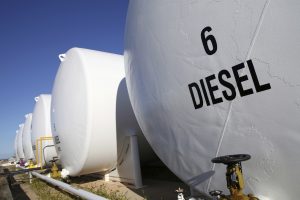
Diesel usage is an area where most Transport companies constantly strive to cut costs on. It is the biggest single cost to Haulage Firms, with an average of over 30% of total costs being fuel expenditure. Every Haulage firm targets this area in an effort to reduce costs, with the vast majority of firms daily exploring solutions to the ever-increasing price of diesel.
- The Driver: Monitoring, Performance and Incentives
The Driver is the person who can most affect diesel usage on a day-to-day basis. Driving habits are imperative in the saving of fuel costs. Driving aggression, braking, gear changes, acceleration, idling and over-speeding are just a few of the things which impact fuel consumption in the truck. The driver is in complete control of these things, and if sufficiently motivated and trained, should be in a position to save fuel by improving their driving performance. Improved incentives and proper driver training are the two obvious methods that companies can implement in order to improve driver performance and subsequently reduce fuel consumption. Haulage Firms have monitoring systems in place in order to survey the drivers performance. This enables them to offer incentives to drivers in terms of their performance and driving standards, and keep an eye on their driving habits and fuel consumption. Accurate monitoring systems will lead to fair Driver evaluations, culminating in improvements in fuel consumption and increased driving performance.
- Speed Limiter Calibration
Reducing the Speed Limiter Calibration on the trucks by just 5kmph can reduce fuel costs significantly. Although it will increase the target lead time on deliveries, if managed and planned properly this will not have a great impact. This will not only increase savings on diesel costs, but reduce potential mechanical issues with the vehicle, culminating in a safer truck with a higher performance.
- Vehicle Maintenance
Regular maintenance checks on trucks and trailer units will aid the reduction in fuel consumption. Regular checks of tyres, clutch, engine, spark plugs, air filter, and oil, and a regular monitoring of the vehicles condition and roadworthiness can go a long way to reducing fuel consumption. Trucks operating in their optimum condition will burn less fuel than trucks that aren’t, and maintaining these vehicles and keeping them at a high performance level can ensure that diesel costs are reduced.
- Vehicle Specification/Type
Another fuel reduction measure would be the Specification and type of the tractor units. The age of the truck is a big factor, with newer models using less fuel than older models, due to improved engines etc. The weight, condition, load, aerodynamics, intake, exhaust, rolling restrictions and mechanics of the vehicle are all factors that can aid in the reduction of fuel consumption.
- Weather & Road Conditions, Traffic Congestion etc.
Weather has a major impact on fuel consumption, as it can lead to both poor road conditions and potential traffic congestion issues. These can all affect fuel consumption levels, and although they are mostly unavoidable problems, good planning can mean that trucks take a different route, with possible smoother surfaces and less traffic. This can also help reduce wear and tear. In hot conditions, air conditioning can cause fuel consumption to rise, however, there is a solution to this. Leaving the windows open and air conditioning off a lower speed, and then switching when at a higher speed can actually reduce diesel consumption levels.
Written by our Business Undergradute Peter Culleton













